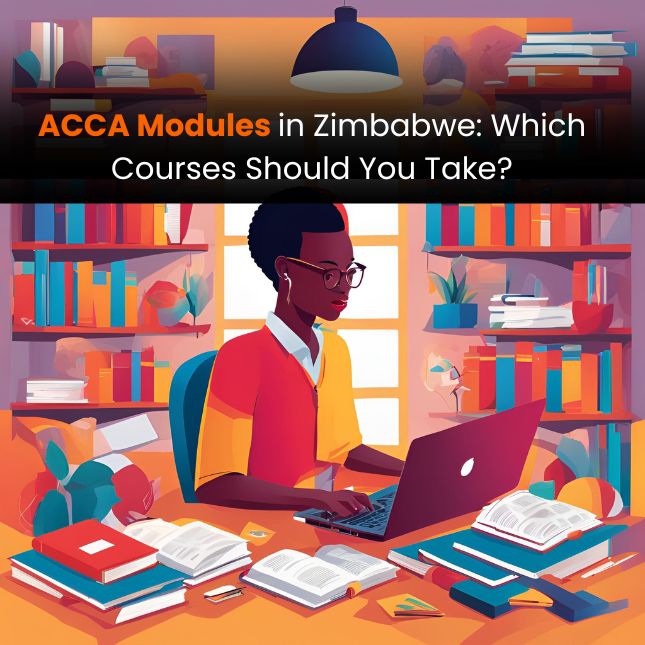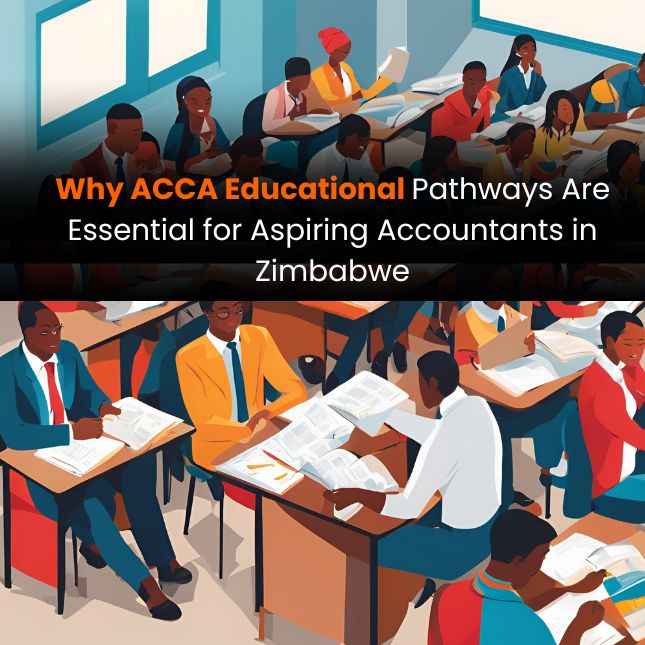OVERVIEW:
ACCA qualification is a widely recognized accounting credential that comprises a sequence of 13 examinations. These ACCA modules are categorized into three levels: Applied Knowledge Level, Applied Skills Level, and Strategic Professional Level. Each level prepares you for the next one, Applied Knowledge is the fundamental level that allows you to understand the basics, Applied skills level teaches you to apply your knowledge learned in previous ACCA modules in real-life scenarios and lastly Strategic professional level is the most advanced level. For further information about ACCA modules, please refer to the article below.
APPLIED KNOWLEDGE:
This platform helps students develop a basic comprehension of accounting concepts. This level especially supports students entering this field without prior knowledge of accounting and finance. This level consists of 3 modules: Business and Technology, Management Accounting, and Financial Accounting.
F1: Business and Technology (BT): This course provides extensive knowledge about the role of an accountant within organizational structures, business activities, governance, ethical issues, and their role in sustaining performance and adherence to regulations in a company.
F2: Management Accounting (MA): This course primarily aims to equip students for cost management and the decision-making processes within a company. The subject matter of management accounting encompasses costing techniques like absorption and marginal costing, budgeting, performance assessment, and decision-making strategies such as break-even analysis, among others.
F3: Financial Accounting (FA): Financial accounting aids students in understanding fundamental accounting concepts and creating financial statements. This course covers topics such as balance sheets, income statements, cash flow statements, and more.
APPLIED SKILLS LEVEL:
At this stage, the knowledge gained from the previous level is utilized in practical situations and more real-life scenarios. This level contains 6 modules (Corporate and business law, performance management, taxation, audit and assurance, financial reporting, and financial management). Each course builds different skills to prepare you for the professional challenges.
F4: Corporate and Business Law (CL): This course emphasizes the legal framework within which businesses operate, covering topics such as dispute resolution, company law, and international business law, among others.
F5: Performance Management (PM): The main emphasis is on assessing an organization’s performance and utilizing various management accounting methods to enhance the organization’s overall performance. The material covered in this course comprises budgeting, performance metrics, variance analysis, and more.
F6: Taxation (TX): The essential skills acquired in this course include grasping compliance and tax strategy, and managing taxation and tax processes in both personal and corporate finance. The syllabus encompasses corporate tax, VAT, income tax, capital gains tax, and more.
F7: Financial Reporting (FR): This course includes subjects like income accounting, liabilities, assets, and equity. The main focus is to acquaint students with financial statements according to international standards (IFRS).
F8: Audit and Assurance (AA): This course’s prime focus is on auditing practices, ethical issues in auditing, comprehension of audit reports, and more. The syllabus includes risk evaluation, audit strategy, internal controls, regulatory standards, etc.
F9: Financial Management (FM): It emphasizes investment choices, financial evaluation, and decision-making. This course covers topics such as capital budgeting, financial risk management, and the cost of capital, among others.
STRATEGIC PROFESSIONAL LEVEL:
At this stage, the learner anticipates acquiring advanced knowledge and evaluating it with strategic thought. This phase is split into two sections (Essentials/Required and optional/Electives).
ESSENTIAL (MANDATORY ACCA MODULES):
All students must complete these required ACCA modules.
Strategic business leadership (SBL): This is a comprehensive, conceptual assessment designed to evaluate students’ skills in implementing strategic decision-making within intricate business situations. This module encompasses strategic analysis, leadership, business planning, and more.
Strategic business reporting (SBR): It is the most advanced level of ACCA qualification. This ACCA module focuses on key skills such as applying intricate accounting standards and understanding international financial matters. It fundamentally instructs students to thoroughly interpret and analyze financial statements. This module covers reporting frameworks like IFRS and GAAP, analyzing financial results, financial statement interpretation, and more.
OPTIONAL COURSES:
Students are required to choose any two courses from the four options provided at the strategic professional level. The four alternatives include Advanced Financial Management, Advanced Performance Management, Advanced Taxation, and Advanced Audit and Assurance.
CHOOSING RIGHT ACCA MODULES:
If you don’t have a prior qualification in the related field of accounting and finance, then you should start your journey from the Applied skill level ACCA modules only to get a basic understanding. Whereas, if you have a degree in accounting or finance you might be eligible for exemptions in certain exams at applied skills and applied skills level. For exemptions you can check ACCA’s global website. The number of exemptions depends on your qualifications and institute.
AN OVERVIEW OF THE QUALIFICATION:
The order of exams: The ACCA qualification offers great flexibility, but students are recommended to take the Applied knowledge exams initially, as they form the foundational level of the qualification. This should be followed by the Applied skills level, which utilizes the theory learned previously in real-world situations, and finally, the strategic professional level, which is the most advanced among the levels.
The qualification consists of 13 ACCA modules in total, and these modules develop a thorough understanding of accounting to address intricate business situations. Typically, the qualification requires 3 to 4 years to finish; however, the completion time can differ based on each person’s study speed and dedication to their education. The ACCA qualification is internationally acknowledged, which consequently provides access to numerous global career prospects in the fields of business, accounting, and finance.
CONCLUSION:
The ACCA qualification is comprised of 13 modules organized into three tiers (Applied knowledge tier, Applied skills tier, and strategic professional tier). These modules deliver insights ranging from the basic principles of accounting to the higher, professional tier. The modules provide you with different facets of business, accounting, and financial management. The abilities learned in these modules allow you to apply your knowledge in practical business scenarios and embark on your professional path. By maintaining focused attention and persistence, you can excel in the ACCA modules and realize the professional advancement you’ve always wanted.
FREQUENTLY ASKED QUESTIONS:
Q1: which ACCA modules should I choose for ACCA in Zimbabwe?
Answer: If your prior education is A-level or equivalent then you will need to start from the applied knowledge level. However, if you have a degree in accounting or finance you might get exemptions from Applied knowledge exams.
Q2: How many exams do I need to complete for the ACCA qualification?
Answer: To complete the ACCA qualification you will need to achieve success in 13 exams. The applied knowledge level comprises 3 ACCA modules, the applied skills level comprises 6 modules, and the strategic professional tier comprises 4 modules, with 2 being optional.











